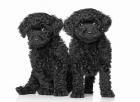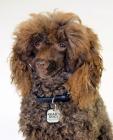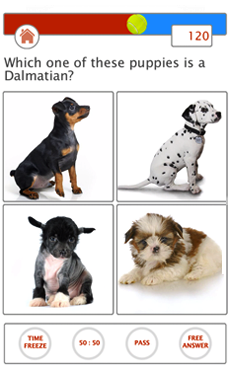Miniature Poodle
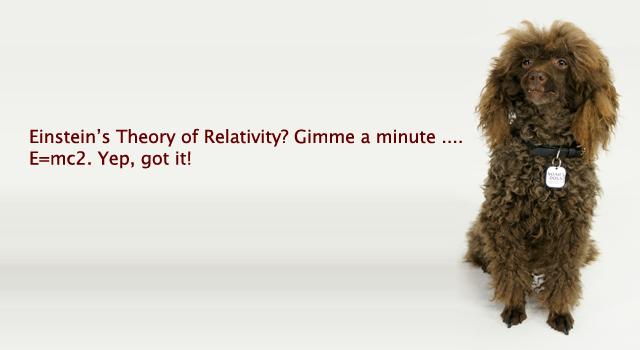
In my own words
Did you know I’m the second most intelligent dog in the world? And no, I’m not telling you who is, so there! I’m here to tell you about me, me, me! I just love attention, how did you guess, and adore being fussed and being asked to show off how many tricks I can do, and I can do lots! I like my exercise, and love to walk, and my bigger cousins can even go hunting. I prefer playing games though – especially with children, because they don’t keep stopping to answer the phone or tell me they’ve got other things to do. What things, when there’s me to play with? I need help with my curly hair, so a good brush every day is a kindness, but the good news is I don’t shed like other dogs, so if you’re asthmatic, perhaps I’m the dog for you
My ideal owner(s)
Active sporty types
Families with older children
Singles
Older people
What they say about me
Curly
Elegant and noble
Intelligent
Easy going
Loving
Friendly
Protective, can be jealous
Please read on, to find out more about me, and whether I will be someone you can be happy with for the next 15 years!
Is this Miniature Poodle for you?
Test your knowledge about the Miniature Poodle
Information essential about the Miniature Poodle
Kennel Club Group:
Utility
Size: Three types, Standard, Miniature and Toy.
Miniature is medium: Height 11 – 15” (28 – 28 cms) Weight 15 – 17 lbs (5.5 – 7kg)
Popularity:
Once very fashionable, the Poodle’s popularity has waned over the years, but they remain a popular family pet, and a favourite of older people.
Breed History:
Poodles have lived in Europe for centuries, and there is a debate about whether they originate from Germany or France. The name Poodle is believed to derive from the German word Pudel which means “plays with water”, and indeed Poodles were used as retrievers to fetch water fowl for hunters. However, most people think the Poodle’s origins lie in France, where it is a much loved national breed. Long prized for their intelligence and good manners, Poodles were often used in circuses and dog shows as well as simply companions. They were also commonly used as truffle hunters, and were often crossed with Terriers to improve their “nose” for the priceless fungus. The Standard Poodle is believed to be the oldest of the three types, the Miniature and the Toy versions simply being bred down in size, the Toy first emerging during the 18th Century. Today all three are judged in the same Utility category by Kennel Clubs.
Character:
Intelligent, active, agile with loads of stamina, your Poodle loves to learn new tricks, go for walks and has a huge fondness for water and swimming. He will excel at dog agility and obedience competitions, and is a natural winner in showing classes. He is patient with children, and playful too, but not really suitable for very small children as he is not as patient as his larger cousin, the Standard. Toy Poodles, being more physically fragile, are a good choice for families with no children. Your Poodle, though he will bond with you, will also bond with everyone else in the household, and be protective of everyone.
Temperament:
Your Poodle thinks he’s a world’s greatest watchdog, and will let you know whenever anyone comes near his territory, from the postman to next door’s cat. Training can help lessen this tendency, and keeping him busy will also help take his mind off who’s out there. He can be highly strung, which is what makes him more suitable for older children who can understand not to let him get over excited. Protective of everyone in the home, he can also be jealous of other people not part of his “pack”. If he is allowed to become bored, he can be destructive, so make sure he has plenty to do, and try not to leave him alone for very long because he hates being on his own. Your Poodle has a great sense of humour and will often instigate a game himself. In the end, all he really wants is to be with you, big time.
Conformation:
Your Miniature Poodle is as tough as they come, but he should look dainty, and carry himself with graceful pride. He should have a small to medium frame, and the head should have a rounded skull, a long face and muzzle with dark, oval eyes and close hanging ears. His feet, being webbed, should be neat and compact. His tail, previously docked as custom, not should be thick at the root and set on quite high, carried away from the body and as straight as possible.
Colour:
Any solid colour.
Training:
Your Poodle will learn as much as you have time to teach him, and thrive on it. Basic training is a breeze, and socialisation is normally a simple process as he is naturally friendly. Take care not to over fuss him though, or let him develop a jealous streak as this can lead to snappy behaviour. Your Poodle will be equally at home retrieving a stick (preferably thrown into water!), playing “dead”, walking on his hind legs, going for a long walk in the woods or having a nice couch cuddle in the evening. Most Poodles would like to do all these things during the course of one day. Because of his graceful movement and proud stance, he will enjoy being your posh Show Dog too and will learn all the necessary commands and movements easily.
Care:
Although your Poodle doesn’t shed his coat onto the floor like other dogs, he sheds it into his own coat , so he will need a thorough grooming every day as the curls can quickly become tangled and matted. There are various styles of clip, and if you intend to show your Poodle, check with your Kennel Club as to which clip is desirable. If you don’t want to be bothered with all that, an all over “pet clip” saves a lot of time and trouble, then you can easily care for him at home with a visit to the grooming parlour every couple of months to keep him looking his best. Prone to ear infections, like other long eared breeds, make sure you keep his ears clean too.
Health:
Your Poodle is a healthy breed, and should have a trouble free, long life of up to 15 years. Poodles have a predisposition towards Addison’s Disease, and like many deep chested breeds, can suffer from Bloat (Gastric Torsion). They can also develop geriatric cancer. By far the most common cause of death in Poodles is sheer old age! So don’t worry, your Poodle should give you years and years of laughter and love.
You may also like:
If you like Miniature Poodles, you may be interested in breeds of the same size »
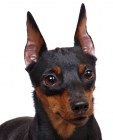

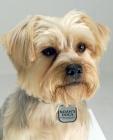


If you like Miniature Poodles, you may like other breeds with similar characteristics »
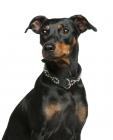
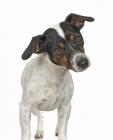


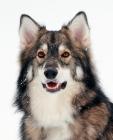
If you like Miniature Poodles, you may be interested in these other toy dogs »




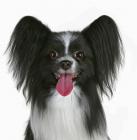
Advice on choosing your breed »
Find an animal shelter or rescue home where a Miniature Poodle is waiting for a new home »
The following grid gives a fast track review which covers all breeds. You can apply it to help you decide if a Poodle is suitable for you, the environment where you live, your personality and your lifestyle. On the grid, 1= strongly disagree, and 5= strongly agree. For example, if you are looking for a dog that makes a good walking companion, look down the list under Activities, and you will see that Poodles make great walking companions, scoring 5. If you want a dog that is good with children, look under Role & Suitability, and you will see that Poodles are good with older children, and score 5. You might like to save or print off this section and keep it for reference while you check some other breeds before making your final choice.
Be the first to rate this breed »
|
*PLEASE NOTE: All our breed profiles are general, and all dogs are individuals. Always talk to the breeders and meet the owners you are buying from. Try to meet the dog and its parents if it is a puppy in their home environment.









